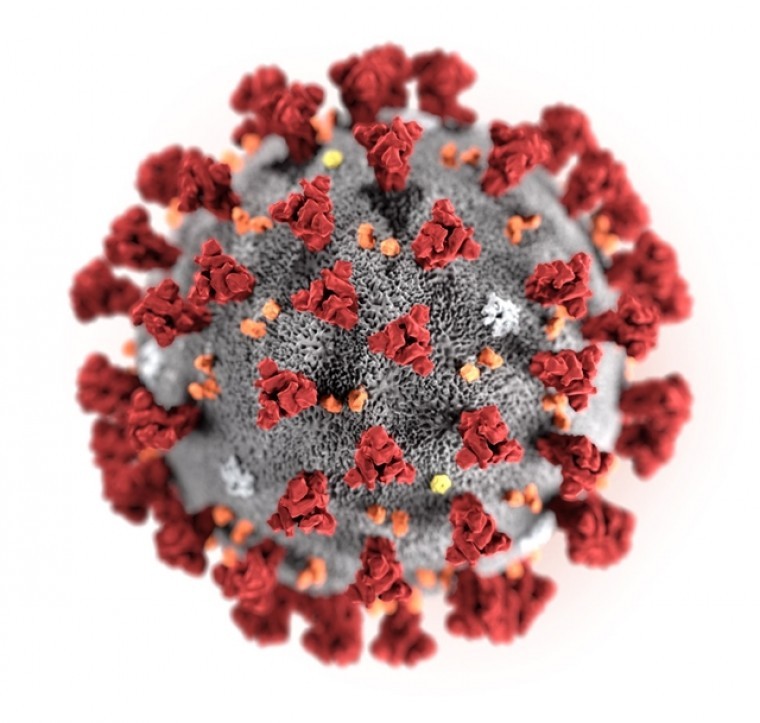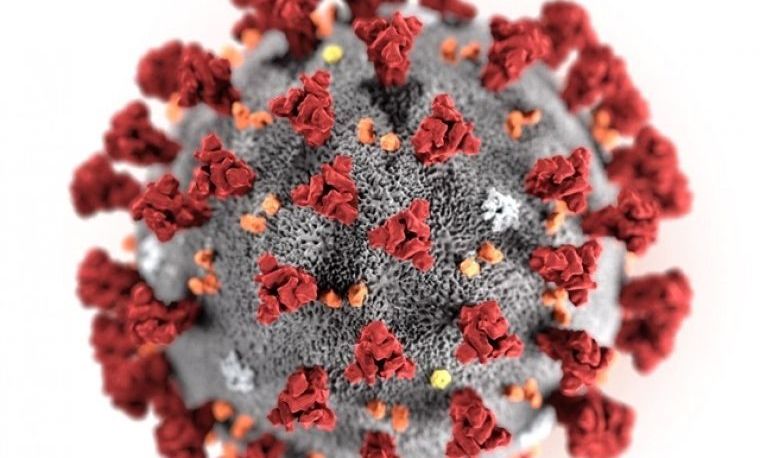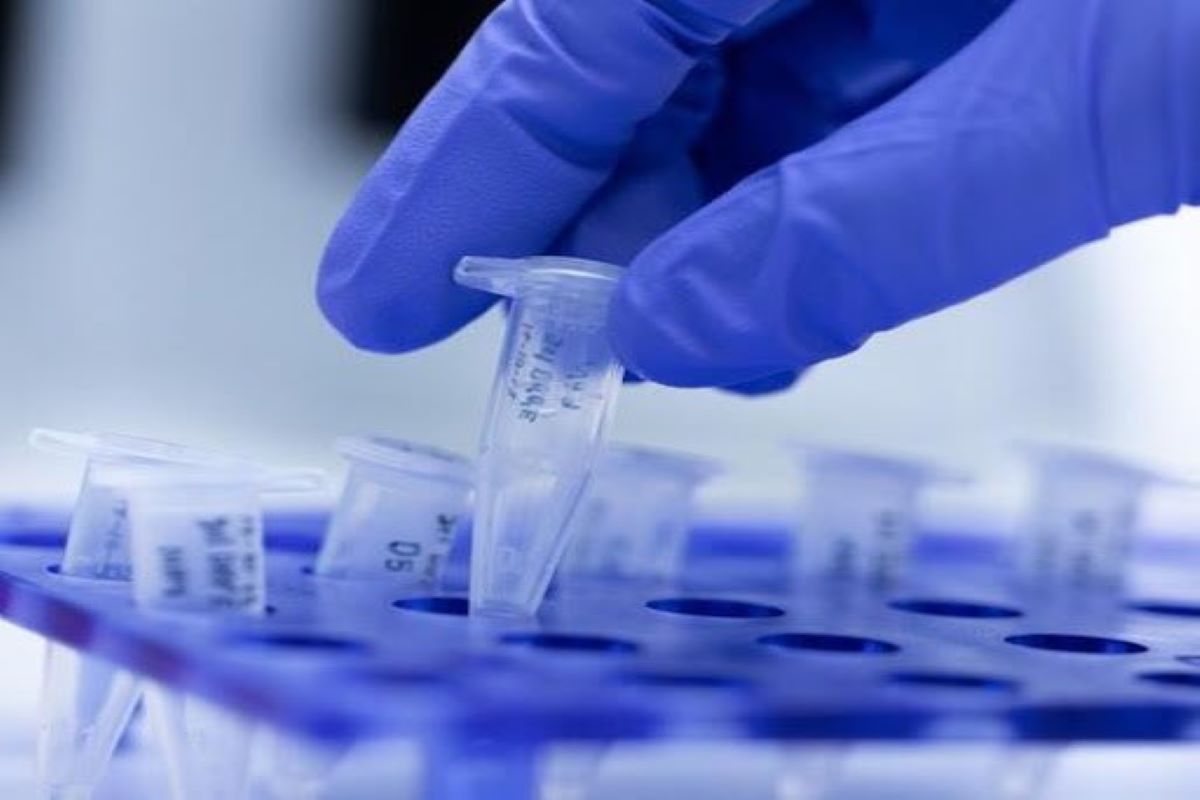PCR assay and serological (antibody) tests for CoViD-19
To detect and monitor new infections, for contact research, assess immune response, monitor healing and protection.

1. PCR assay
The PCR test detects the virus itself in 1 to 3 days after the infection by examining the genetic characteristics of the virus (polymerase chain reaction) from a sample, taken from the nasal or pharyngeal mucosa. The test is suitable for confirming the suspicion of the disease, establishing a diagnosis, confirming recovery, and contact researches.
The official price of the examination is HUF 19 500, but you can order the examination at Medicover for HUF 14 999, and at a discounted price of HUF 10 000 at some of our Lab Points.
If you wish to have a nasal mucosa swab, please be sure to let our colleagues know when booking your appointment!
Given that this is a discounted price, our discounts in the contracts does not apply to this.
Medicover shall not be liable for any delay or failure to provide the service if it has occurred for reasons not imputable to Medicover, in particular force majeure (due to unforeseen circumstances beyond its control).
The PCR tests, provided by Medicover, are performed in a microbiologic laboratory that meets the criteria issued by the National Public Health Center (NPHC).
These test results (2 negative results in 48 hours, within 5 days) are accepted by the epidemic authorities to issue the decision about the release of the official surveillance or quarantine. Please note that the petition for the release with the negative test results should be sent to the epidemic authorities.
In case of quarantine, visiting a testing laboratory should be requested from the authority who ordered the quarantine. In case of official surveillance, this is not mandatory. It is important to take the first test after the 4th day, after the contact of an infected person.
CoViD-19 positive individuals with symptoms are not allowed to leave the place assigned to quarantine by the public health department of the competent local borough/district authority.
You will receive your result electronically on the day of sampling.
In case you would like to order PCR assays for more persons (e.g. family or for employees up to 5 persons) please fill in our group PCR tests order form by clicking here.
2. Coronavirus (SARS-COVID-2) IgG antibody test
This test measures the S1/RBD IgG antibody to the coronavirus spike protein. To the best of our current knowledge and understanding, the RBD (receptor binding domain) antibody is the most specific coronavirus antibody that neutralises the coronavirus in the event of infection and provides immunity after vaccination. This test is also suitable to measure the immune response after administration of the currently available spike protein-based vaccines (Pfizer, Moderna, Sputnik, Astra Zeneca, Johnson & Johnson) in Hungary.
The test for spike protein-based vaccines provides a numerical result of the level of antibodies produced by the body, which indicates the extent of the immune response to the vaccine or infection.
The test is performed on a blood sample taken from a vein.
The result will be available in our online system after 1-4 working days.
The price of the IgG immune response test after Coronavirus vaccination is 9 900 HUF.
You can order the test via our Webshop.
4. Cellular immune response test after coronavirus (COVID-19) infection and vaccination
The immune response developing after coronavirus infection and vaccination has several manifestations, which expands the possibility of laboratory measurements. After coronavirus infection, the function of one of the cellular elements of the immune system, the B lymphocyte, can be measured by the IgG antibodies produced. Antibodies to coronavirus spike protein (S protein) or nucleocapsid protein (N protein) can be tested. However, experience has shown that there are patients in whom no antibody can be detected after coronavirus infection. We also see that antibody levels decrease over time and fall below the detection limit. After vaccinations, we see the same phenomenon.
A laboratory test of the function of another cellular element of the immune system, the T cells, is suitable for showing the body’s immune response even in the absence of a measurable antibody.
In this test, we reconstruct an infection under laboratory conditions in which infection-dominant fragments of the coronavirus are present, without the virus’s genome. The assay measures the responses of different T cells (CD4 helper T, CD8 suppressor T).
We examine the immune response after infection and in case of patients who are patients vaccinated against coronavirus (Moderna, Pfizer, Astra Zeneca, Sputnik, Sinopharm) with a test of 4 types of proteins. The results are evaluated.
We recommend the T-cell test:
- in long-COVID disease without antibody
- to confirm that an infection has occurred if no antibody is detected
- to assess cellular immune response after COVID vaccination in negative antibody cases
- after recovery and vaccination to assess the long-term immune response
Turnaround time: 14 working days.
The price of the test: 43 000 HUF
4. High sensitivity serological test (SARS-CoV-2 antibody (IgG+IgM) test)
The test reliably shows whether someone is infected or has already been infected and has recovered or is protected. The test is not suitable for measuring immune response after vaccination, as post-infection antibody tests (IgM/IgG and quantitative IgG) do not measure antibodies against spike protein, but antibodies against virus-specific nucleocapsids. If you would like to know the level of protection after vaccination, please choose our IgG immune response test after Coronavirus vaccination! The test is performed in our own laboratory using a high-sensitivity ELISA method that requires laboratory equipment.
The price of the examination, with a discount, is 19 000 HUF.
The test result is usually completed within 1 business day (up to 4 business days). The finding will be sent by e-mail.
In case of our SARS-CoV-2 antibody (IgG + IgM) test, there is no numerical result. In this assay, a positive, negative or weakly positive result is given, and we provide a textual finding evaluation.
The test result is not suitable for issuing an immunity certificate against coronavirus.
About coronaviruses in general
Coronaviruses (coronavirus abbreviated in English: CoV) are enveloped RNA viruses that infect humans, mammals, and birds. Some of these can cause respiratory, gastrointestinal, hepatic and nervous system diseases in humans. Two types of coronavirus, known as SARS-CoV (i.e., Severe acute respiratory syndrome coronavirus) and MERS-CoV (Middle East respiratory syndrome coronavirus), have previously caused severe viral respiratory epidemics.
CoViD-19 epidemic
The 2019 coronavirus pandemic, which began in China, is known as coronavirus disease (CoViD-19) caused by SARS-CoV-2 virus.
Common symptoms of infection include fever, cough, shortness of breath, but diarrhoea and muscle pain may occur. In more severe cases, the infection can cause bilateral pneumonia, severe acute respiratory syndrome (abbreviated: SARS), kidney failure, and even death.
The incubation period of the virus is estimated to be between 2 and 14 days, and the disease usually lasts for 5 days. This long time also makes it difficult to schedule laboratory samples. Coronavirus could be safely identified by laboratory tests, of which there are several types available.

In the current epidemic situation, there are many articles about coronavirus tests. Several, sometimes inconsistent information makes it difficult to decide which method to choose. The following describes the serological assay for detection of coronavirus antibodies by Medicover, and those cases in which we recommend doing so.
Direct detection of the causative agent of coronavirus infection
An infection can be detected by the following methods:
- PCR and antigen tests to detect the presence of the virus itself
- or serological tests to detect antibodies produced in an immune response against the virus. For this latter kind of test, a blood sample is to be taken.

PCR assay
Using this technique on nasopharyngeal swabs, viral RNA, i.e. the virus itself can be detected at the earliest 1-3 days after the infection. PCR (polymerase chain reaction) test looks for the genetic code of SARS-CoV-2 and it will return a positive result until full recovery is reached.
As an advantage, PCR provides an early-detection of the virus, but in case of too early testing (during initial incubation period), when the virus is yet undetectable in the taken sample, a retest might be necessary. Once the patient recovers, the virus disappears from the mucous membranes. In case of a previous positive test result, the patient can be considered recovered after two negative tests performed at an interval of 48 hours. PCR test is suitable for confirming and making a diagnosis, confirming recovery and examining contact persons.
Inadequate sample collection may cause problems in two different ways as follows: sample does not contain virus copies in a sufficient amount or sampling was performed in a too early stage of the incubation period, when the virus cannot yet be detected. Results are available within 2 days. We inform our patients about the results via e-mail.
The official price of the examination is HUF 19 500, but you can order the examination at Medicover for HUF 14 999, and at a discounted price of HUF 10 000 at some of our Lab Points.
If you wish to have a nasal mucosa swab, please be sure to let our colleagues know when booking your appointment!
Given that this is a discounted price, our discounts in the contracts do not apply to this.
You will receive your result on the day of sampling electronically.
We kindly ask our clients to consider the following points:
- For safety reasons, we require our clients to wear a face mask when coming for testing.
- It is important that you do not eat, brush your teeth, rinse your mouth, smoke, chew gum for a period of 4 hours before the test.
- Before the examination is performed, our colleagues measure your body temperature and ask if you have any of the COVID-related symptoms (fever, cough, shortness of breath, muscle pains/aches or other symptoms that may indicate COVID). In case you have any of the symptoms listed above, we can not perform a PCR test.
- In accordance with the corresponding legal regulations we report positive cases to the competent authorities. After testing, our laboratory will destroy samples.
High sensitivity serological test
This procedure examines the immune response to the infection, namely antibodies produced against the virus, in drawn blood samples. Whenever any bacteria, viruses, fungi or other kind of microorganisms enter our bodies, it is the immune system that recognizes them as „invaders” and protects our health against them. As a result of a complicated immune response, antibodies (immunoglobulins, Ig) specific to the infecting pathogen are produced and the formation of immunological memory cells begins, which provides a long lasting protection against the specific pathogen. The same applies for coronavirus disease.
In general, 4 days after infection IgM and IgA antibodies start to be produced against SARS-CoV-2. Antibody levels become detectable for laboratory diagnostic devices 7-8 days after infection. IgM and IgA antibodies continue to be detectable in blood for 4 weeks after the initial infection. IgM and/or IgA tests in themselves are not to be taken as informative.
IgG to coronavirus, an antibody that provides long lasting protection becomes detectable 10 days after the infection. According to some authors this also means that from this point the disease stops being contagious. Presence of IgG also indicates an ongoing and long lasting immunity, which according to the current state of science can last for a period of 1-3 years.

Due to the high number of individual variations, laboratory results must be thoroughly interpreted. It can happen that an examination gives a result which cannot tell the actual phase of the coronavirus disease certainly enough. In these cases, a retest is to be performed after 10-14 days. A claim for retest will be indicated on the lab report.
The most reliable serology test is based on venous blood. We detect the anti-coronavirus antibodies in our own laboratory using ELISA and immunofluorescence assay (IFA) methods performed on our own laboratory equipment. As an advantage, the test can be used with great accuracy for detecting new or former infections, confirming recovery or acquired immunity.
We recommend antibody (serological) testing for the following scenarios:
- screening communities,
- examination of contact persons of infected individuals,
- detecting coronavirus specific IgG antibodies, it can be shown whether the recovered patient developed an appropriate immune response,
- using this test method, it can be decided whether the causative agent of a healed upper airway disease with symptoms like catarrh and fever was SARS-CoV-2 or not,
- performing antibody testing for asymptomatic patients, it can be shown whether an immunity against the virus developed without having been infected.
Taking into consideration the pandemic situation, the price of the serological test is 19 000 HUF.
The test result is usually completed within 1 workday (up to 4 workdays), and will be sent via e-mail.
Coronavirus IgG antibody test
The assay measures the IgG immune response after a coronavirus infection. An adequate amount of antibody provides protection against a recurrent infection of the coronavirus.
The test helps determine if someone has already had the infection and is already healed, therefore, is protected.
Taking this test is recommended after infection, to assess the strength of the immune response, or to determine if a previous illness with similar symptoms was caused by the coronavirus.
The finding shows the level of the antibody concentration in the tested blood serum. The higher this value is, the higher the level of protection.
Taking into consideration the pandemic situation, the price of the antibody test is 13 000 HUF.
The test result is usually completed within 1 workday (up to 4 workdays), and will be sent via e-mail.
Evaluation of test results
The table below summarizes the possible outcomes and interpretations of PCR and serological test results.
| PCR | PRODUCED ANTIBODIES AGAINST SARS-CoV-2 | ||
| IgG | Interpretation of test results | ||
| positive | negative | No infection occurred or there may be a COVID-19 infection but no antibodies have yet been produced
(due to the window period) |
|
| positive | negative | COVID-19 infection is likely, early stage | |
| positive | positive | Middle phase of COVID-19 infection, early IgM to IgG conversion occurred. Possibility of recurring infection. | |
| negative | negative | New coronavirus infection (COVID-19) with false-negative PCR results OR early phase antibody production has been already started | |
| negative | positive | The virus is no more detectable. Ongoing post-infectious immune response, indicates protection. | |
| negative | positive | Ongoing infection, however SARS-CoV-2 itself is no more detectable, IgM and IgA antibodies continue to be detectable, protective IgG production started. False-negative results of PCR assay possible. | |
| negative | negative | Weak IgM response to the infection. It is caused by immunodeficiency or other reasons. Repeated test recommended after 2 weeks. | |
Who might qualify for testing antibodies against coronavirus?
- Recommended for screening communities
- Suitable for testing contacts of those infected with coronavirus
- Detection of IgG antibodies against coronavirus is verifiable the adequate immune response of those infected with coronavirus
- After any upper respiratory catarrh, fever the test shows that whether the disease is caused by coronavirus or other pathogen.
- In asymptomatic individuals, it is detectable by antibody testing whether the protection has developed without they would have been ill.

